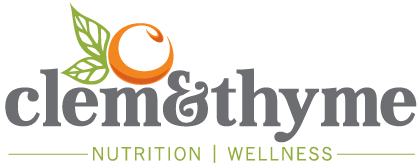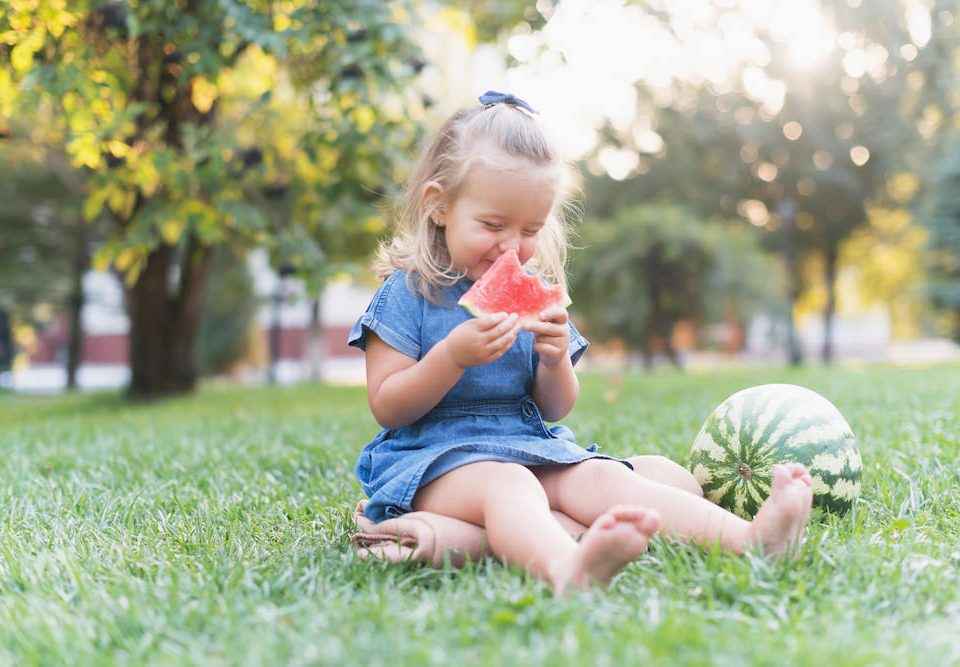
 Just the other day, I was asked, “How many ounces of water should I drink a day?”
Just the other day, I was asked, “How many ounces of water should I drink a day?”
The simple, quick response for healthy adults is to drink half of your body weight (pounds) in ounces of water per day. For example, a 160 lb man should drink 80 ounces of water a day.
The Institute of Medicine has provided more in-depth recommendations based on age:
Institute of Medicine of the National Academy of Sciences Hydration Guidelines
| Age Range | Daily Water Adequate Intake | ||
| Infants | |||
| 0-6 months | 3 cups* (0.7 L), assumed to be from human milk. | ||
| 7-12 months | 3.5 cups (0.8 L), assumed to be from human milk and complementary foods and beverages. This includes ~3 cups (0.6 L) as total fluid, including formula, juices and drinking water. | ||
| Children | |||
| 1-3 years | 5.5 cups (1.3 L) total water,** including ~4 cups (0.9 L) as total beverages, includingdrinking water. | ||
| 4-8 years | 7.5 cups (1.7 L) total water, including ~5 cups (1.2 L) as total beverages, includingdrinking water. | ||
| Adolescents | Males | Females | |
| 9-13 years | 10.5 cups (2.4 L) total water, including ~8 cups (1.8 L) as total beverages, includingdrinking water. | 10 cups (2.3 L) total water, including ~8 cups (1.8 L) as total beverages,including drinking water. | |
| 14-18 years | 14 cups (3.3 L) total water, including ~11 cups (2.6 L ) as total beverages, including drinking water. | 9 cups (2.1L) total water, including ~7 cups (1.6 L) as total beverages, including drinking water. | |
| Adults | Males | Females | |
| 19-70+ years | 16 cups (3.7 L) total water, including ~13 cups (3 L) as total beverages, including drinking water. | 11.5 cups (2.7 L) total water, including ~9 cups (2.2 L) as total beverages, including drinking water. | |
Hydration with Exercise: Hydration requirements are increased with vigorous physical activity. Monitoring your weight pre-exercise and post-exercise will help you create a plan to replace fluids for optimal performance. Great post by Appetite for Health about fluid requirements while exercising.
If you are planning to be active for an hour or less, drinking water will adequately hydrate you. If you plan on exercising longer than one hour, or if you anticipate being out in the sun for more than a few hours, you may want to hydrate with some kind of sports drink. Sports drinks replace fluid, and minerals like sodium and potassium, which are lost through perspiration. Too much or too little sodium and potassium in the body can cause trouble.
Approximately 80% of our water intake comes from drinking water and other beverages, while the other 20% comes from food. Foods with high water content= melons, oranges, grapefruits, grapes, lettuce, cucumbers, celery and tomatoes.
Benefits of Adequate Hydration
- Anti-aging 🙂 Dry skin is more prone to wrinkles
- Digestion 🙂 Insufficient water intake is one of the major causes of constipation
- Increased energy levels 🙂 Water circulates oxygen and nutrients, making vitamins and minerals accessible to your cells, it carries wastes and toxins out of your body and helps your body regulate temperature.
Are you thirsty? If you answered yes, then you’re already dehydrated… bummer.
Signs of dehydration include: fatigue, flushed skin, light-headedness, dark-colored urine, lethargy, thirst, decreased urine output, few or no tears when crying, dry skin and a decrease in skin elasticity, sunken eyes, headache, and constipation. When in doubt, check your pee! Light yellow=hydrated, Darker yellow-amber color=dehydrated.
 (Fun) Fact: A human can survive for a month or more without eating food, but only a week or so without drinking water, so drink up!
(Fun) Fact: A human can survive for a month or more without eating food, but only a week or so without drinking water, so drink up!
To encourage more h20 drinking… get a cute water bottle, or add flavor/lemon to your water 🙂
Although the point of this post is to encourage fluid intake, you can go overboard and harm yourself by over-hydrating. Recommendations are just that… recommendations for the general healthy population. People with congestive heart failure, renal insufficiencies, or retain fluid easily should ask a registered dietitian for personalized recommendations.
References:
- Mayo Clinic: Water: How much should you drink everyday?
- The Water Information Program: Water Facts
- Appetite for Health: How to Tell if You’re Dehydrated
- Appetite for Health: Hydration Do’s and Don’t for Optimal Performance
- Livestrong: What are the benefits of hydration?
- ACE: Healthy Hydration
- Cleveland Clinic: Avoiding Dehydration, Proper Hydration



